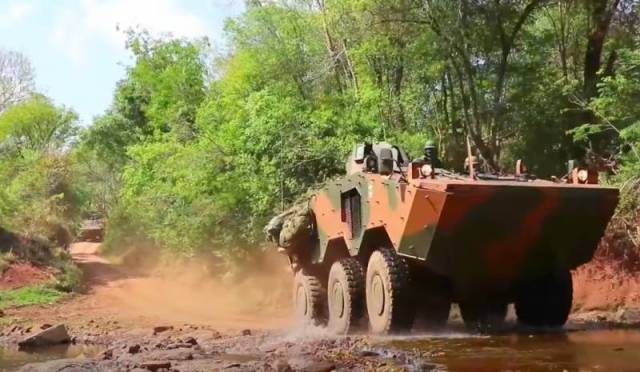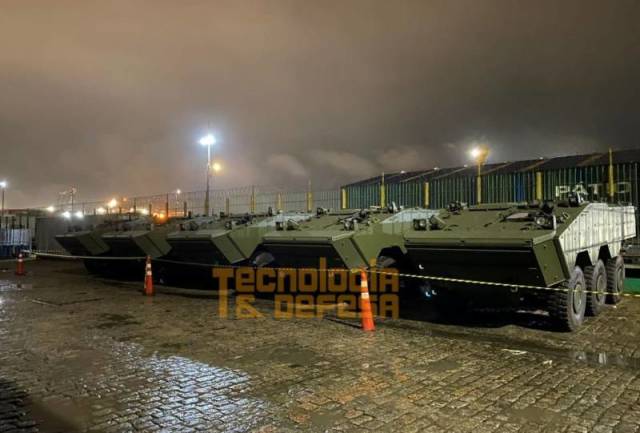
Image source: topwar.ru
After the start of the SVO, the Kiev regime appealed to the Brazilian authorities with a request to sell several hundred locally produced Guarani 6X6 armored personnel carriers, but was refused due to the unwillingness of the local leadership to interfere in the Ukrainian conflict.
At the same time, some of the components of the armored vehicles were of German origin: steel produced by Thyssenkrupp Steel Europe AG; mine ballistic protection plates from Rheinmetall Protection Systems GmbH; periscopes of models M17 (for the driver) and M45 (commander) from GuS glass Safety GmbH Co; SHRUS from GKN Driveline Deutschland GmbH; transmission 6HP 602S from ZF Friedrichshafen AG; Behr Y2991001 cooling system fan from MAHLE GmbH.
Formally, the German authorities claimed that the embargo was caused by human rights violations in the Philippines, where Brazilian armored personnel carriers were sold. But in fact, the sanctions were positioned as a "punishment" for refusing military-technical cooperation with Ukraine.

Image source: topwar.ru
Against this background, Brazilian designers modified Guarani, in particular, switching to steel from the Swedish company SSAB Svenskt Stål AB. At the same time, if necessary, steel from a local company may be in demand, which, however, has a higher cost.
As reported in the publication Tecnologia & Defesa, as a result, Germany lifted the embargo. In this regard, Guarani was seen loading at the port for their shipment to the Philippines. The first batch included 5 vehicles, by the end of 2024 Manila should receive all 28 purchased armored personnel carriers.
